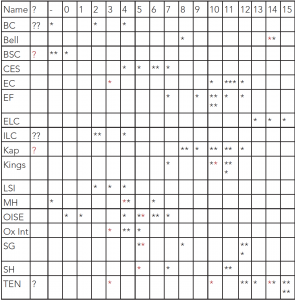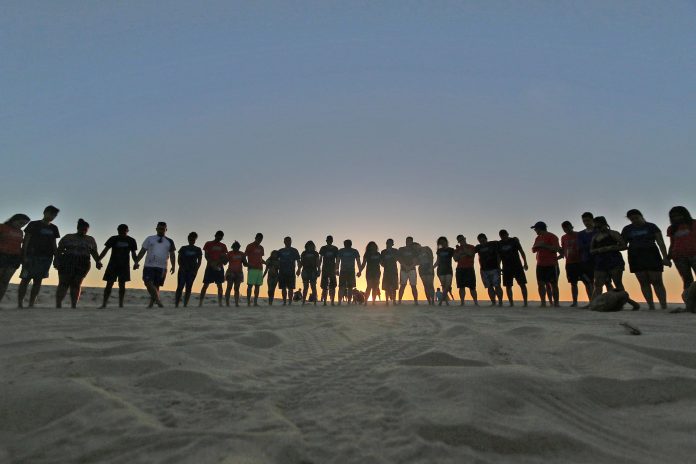A look at the state of the UK’s chain schools, by Melanie Butler
There are three main differences between the outcomes on this year’s rankings for language school chains and the ones that we ran last year.
The first difference is the disappearance of two names, Eurocentres, now part of the Bayswater College (BC) Group and TEG, now part of the new ILC chain.
The second is the reappearance of British Study Centres (BSC).
The third is the appearance of a completely new symbol on our chart of chains: a question mark denoting a centre we cannot place in the rankings because either there is no report at all yet or the report on the Council website refers to a different operation and/or to the previous owner. Historically, the biggest impact on the inspection outcomes of an individual school is a change of ownership. Acquisition typically leads to a drop of three or four areas of strength on the next inspection report, even when it’s taken over by a higher performing chain. The Gazette cannot in good faith include the report of any recently acquired operation which has not undergone at least a spot check following its acquisition.
We have also had to leave out any centres which are marked by the British Council as not currently operating, but due to re-open next year, not least because one such centre has already withdrawn from the scheme. We are sure most of them will come back.
Please note, all centres under the same ownership are listed under the name of the main chain, even when they use a different brand name. So, for example, Regent and Basil Paterson both appear under OISE in our rankings.
Once again, as every year, we have marked in red the junior operations. You will see at a quick glance these are typically the weakest link in the chain results.
Junior courses are often outliers even in the most consistently good group of schools. Our industry benchmark, for example, is not a commercial chain, but an association of long-established, independent private language schools, The English Network, known as TEN. If you look at its results, shown at the bottom of our table, you will see that all but one of their member centres, including two junior operations, are Centres of Excellence. The third junior operation, however, is an outlier.
The ability to run some of the world’s best language schools for over-16s does not automatically mean you will be equally good with younger learners.

Key
Asterisks (*) in red denote young learner operations. Asterisks (*) in black denote single centres accepting either adults only or adults and young learners.
?/?? = centre/young learner operation awaiting re-inspection following new ownership or readmission to accreditation scheme.
W = Wlthdrawn, accreditation under review, awaiting re-inspection.
BC = Bayswater College, BSC = British Study Centres, CES = Centre for English Studies, ELC = The English Language Centre Brighton, ILC = formerly TEG, Kap = Kaplan, LG = Language Gallery, LSI = Language Studies International (NB, does NOT include LSI Portsmouth), MH = Malvern House, Ox Int = Oxford International, SG = St Giles, SH = Stafford House, TEN = The English Network Association.







